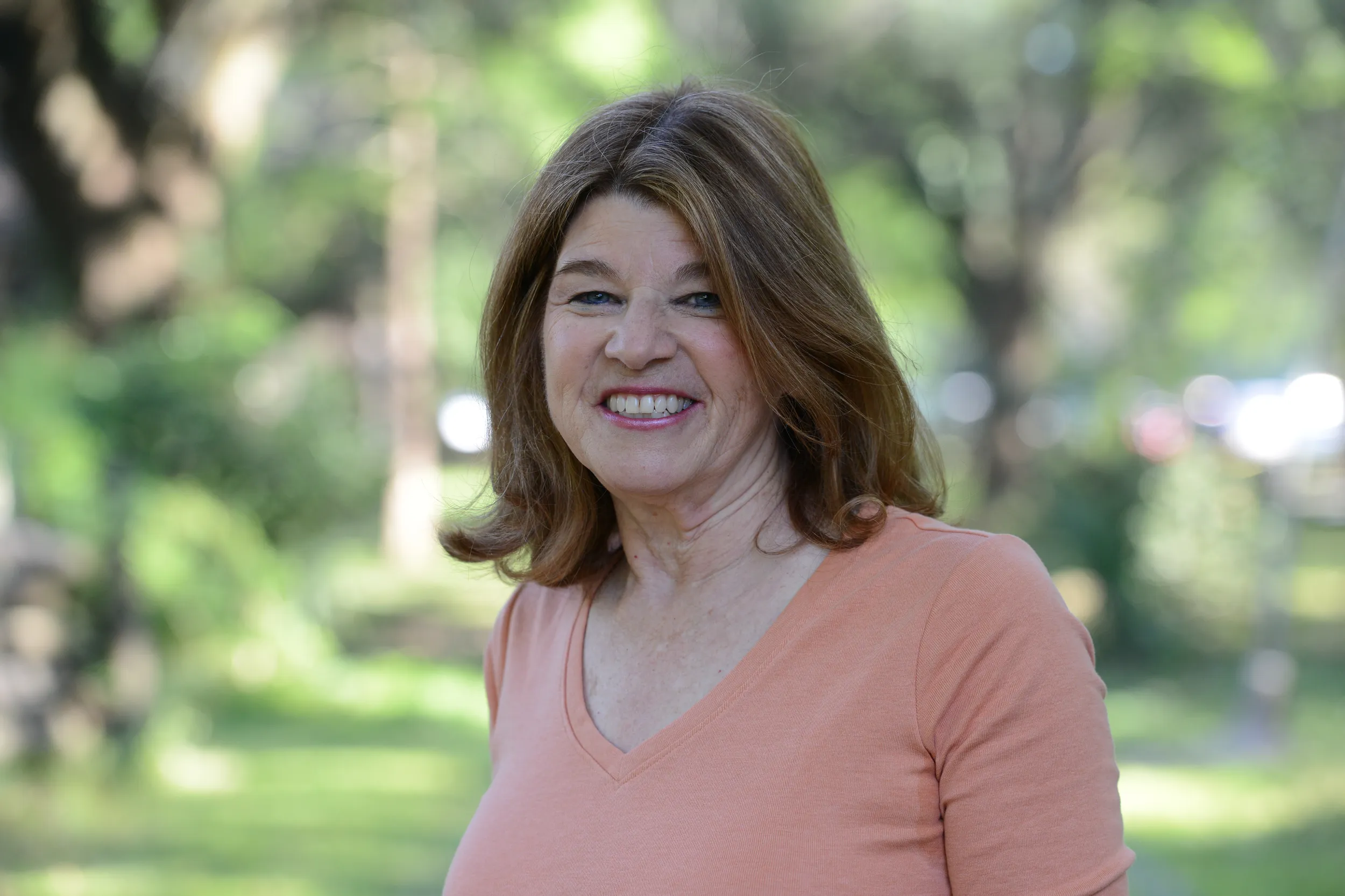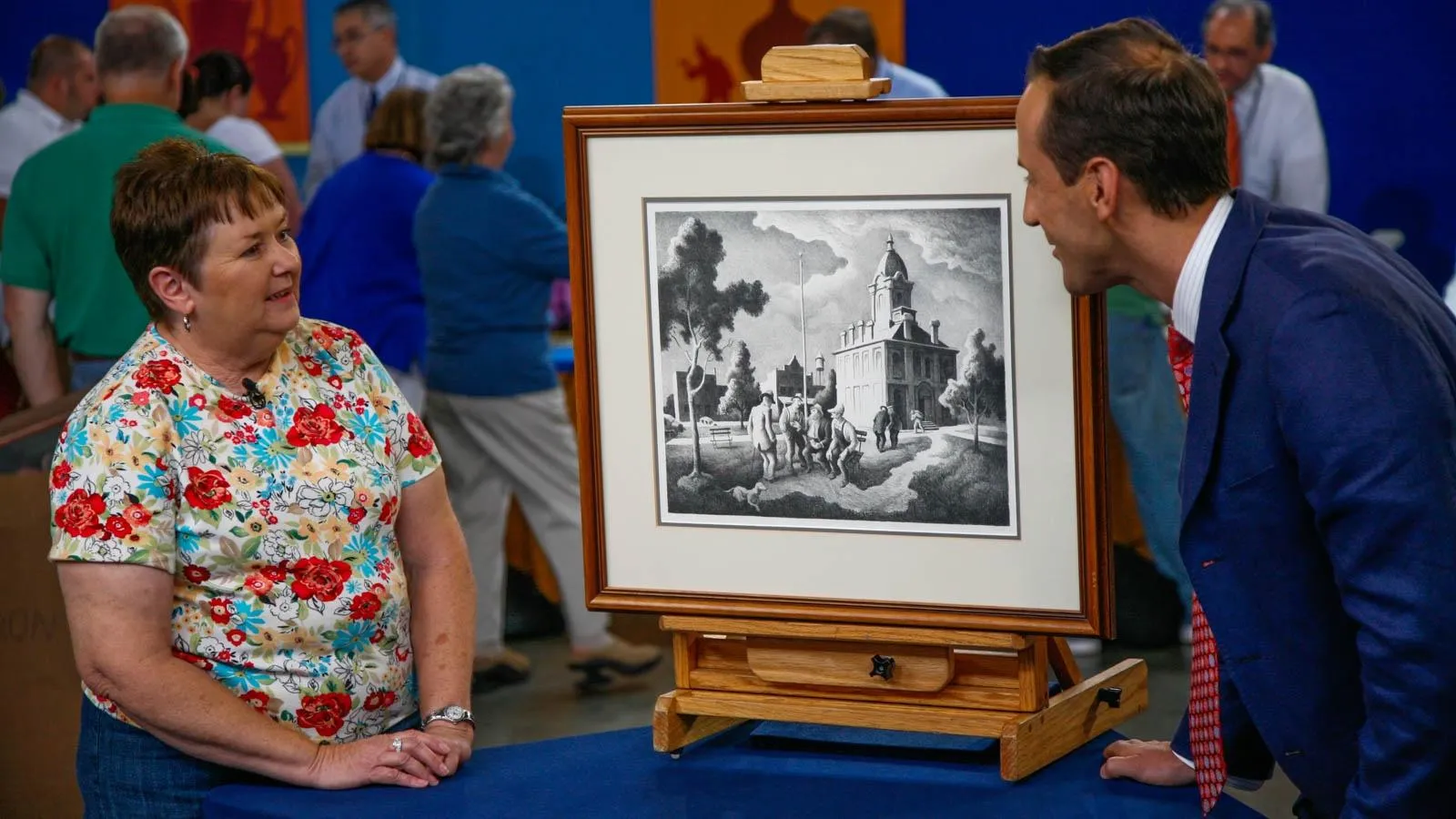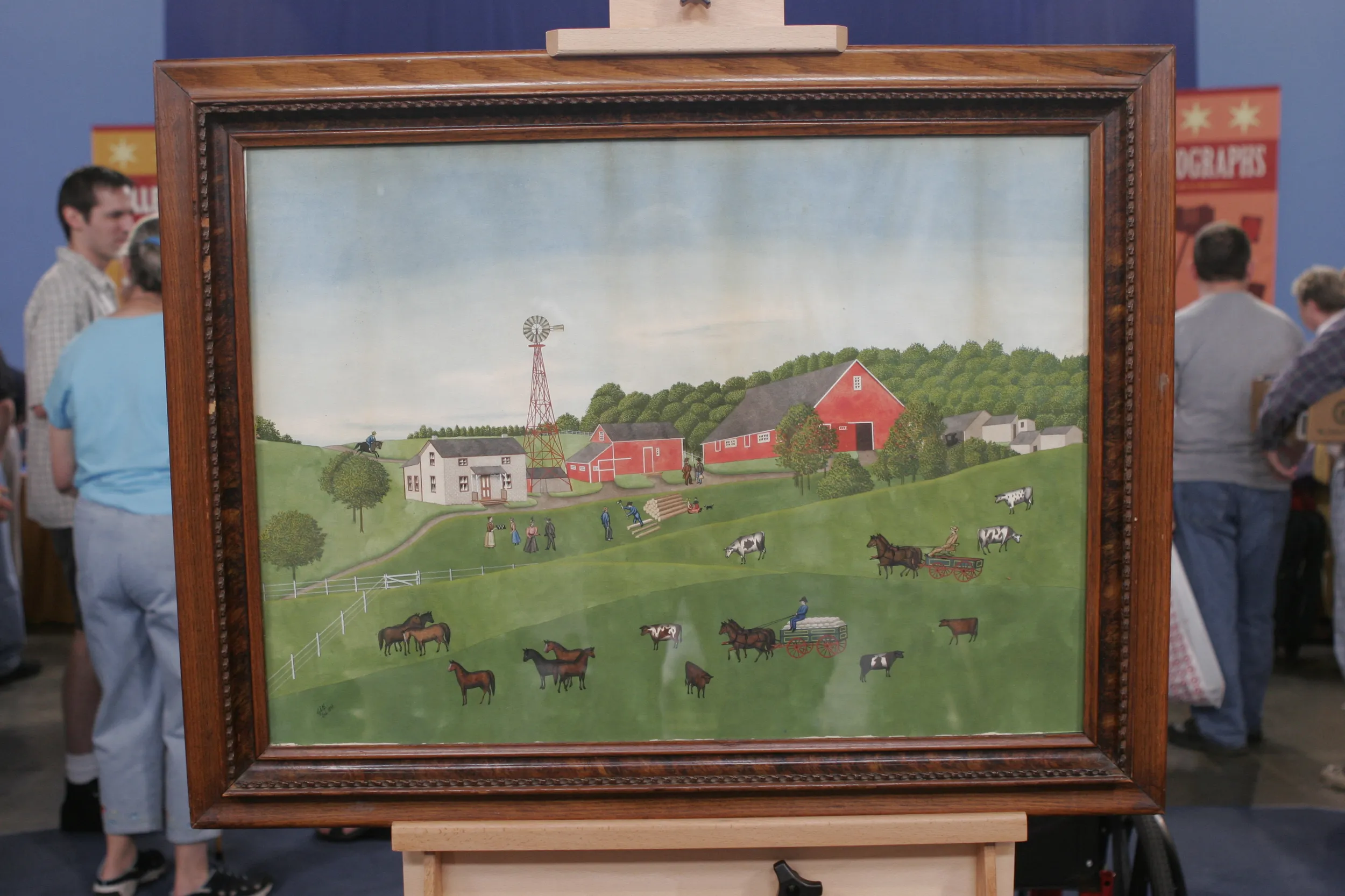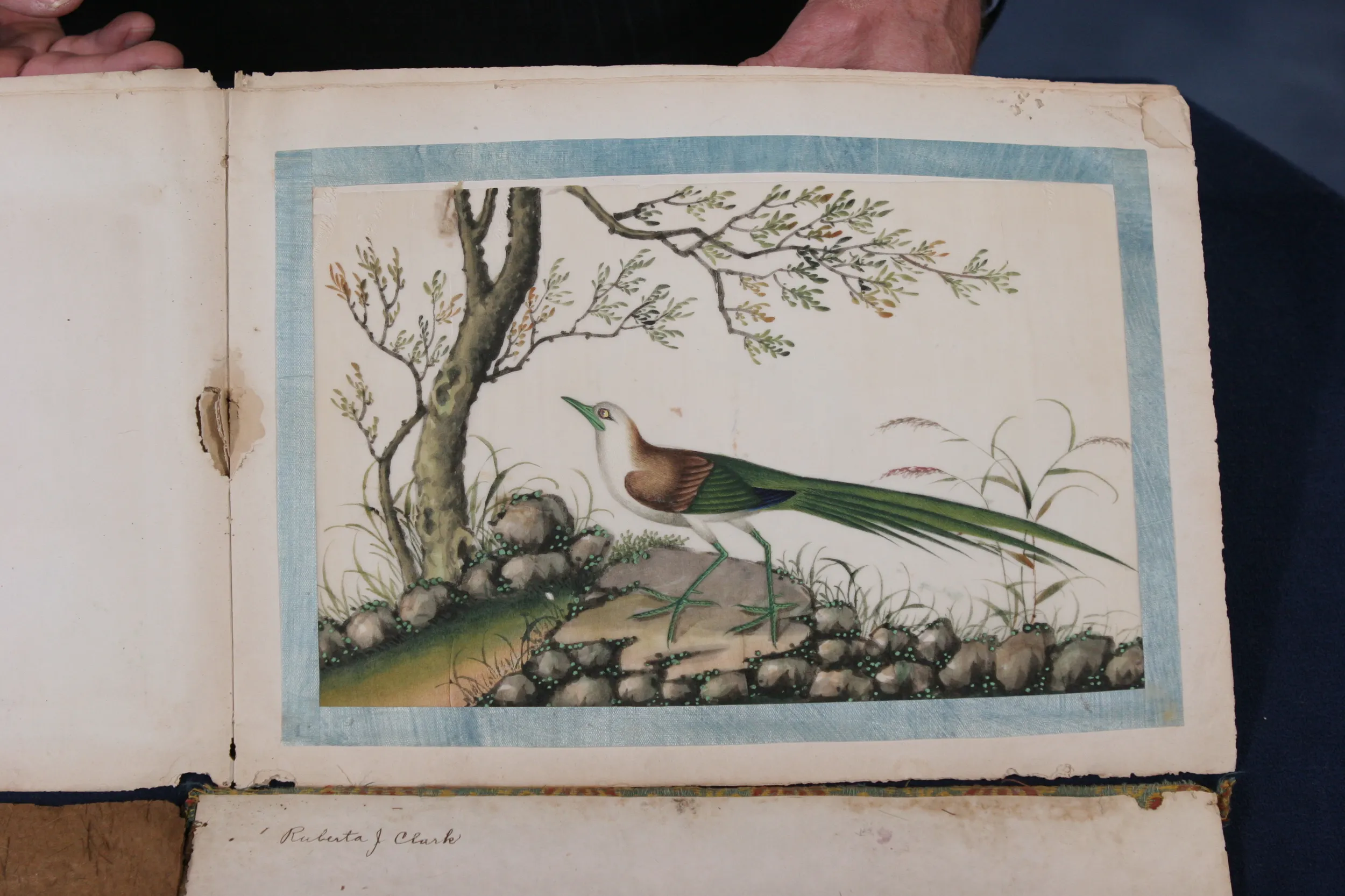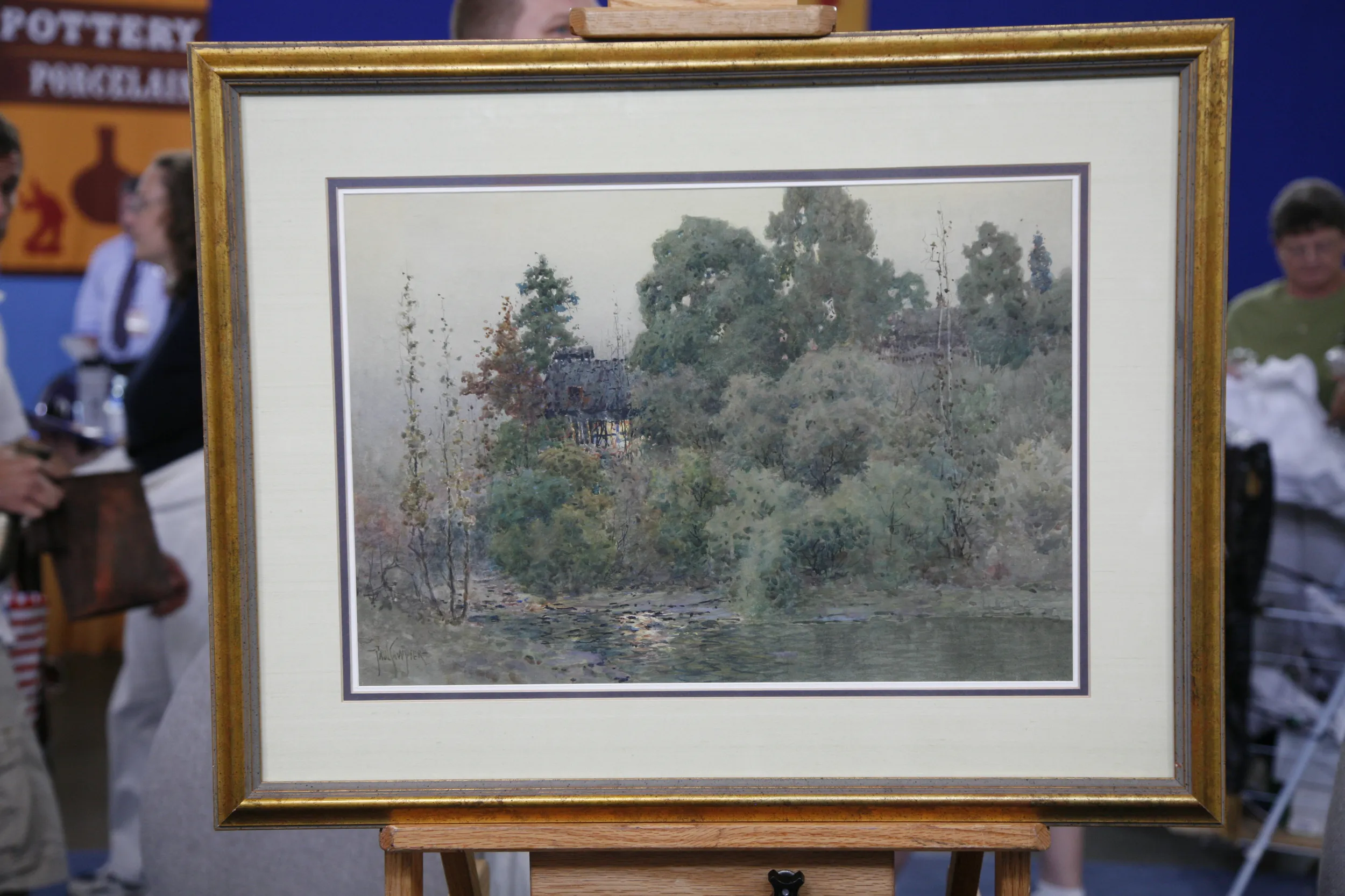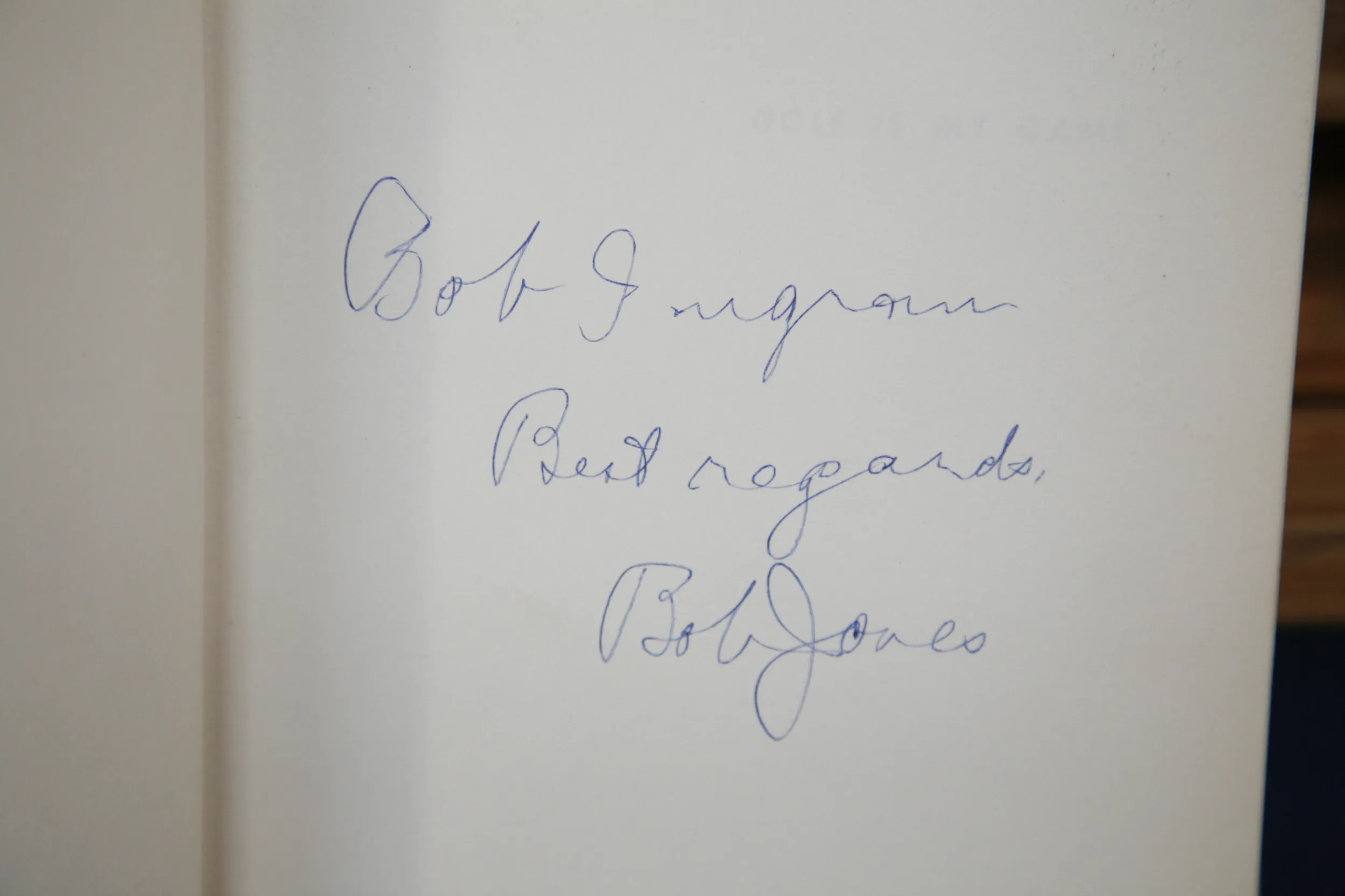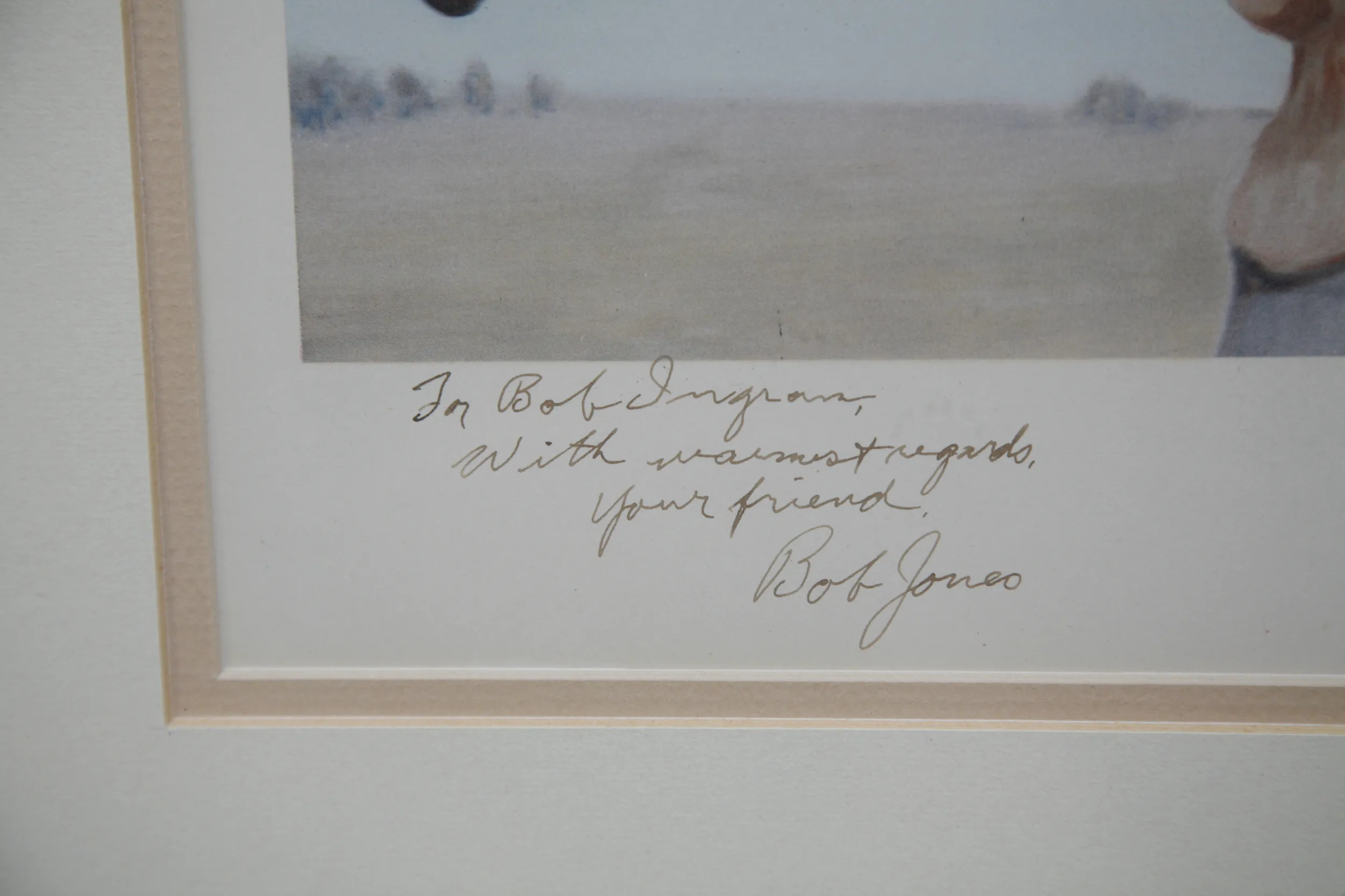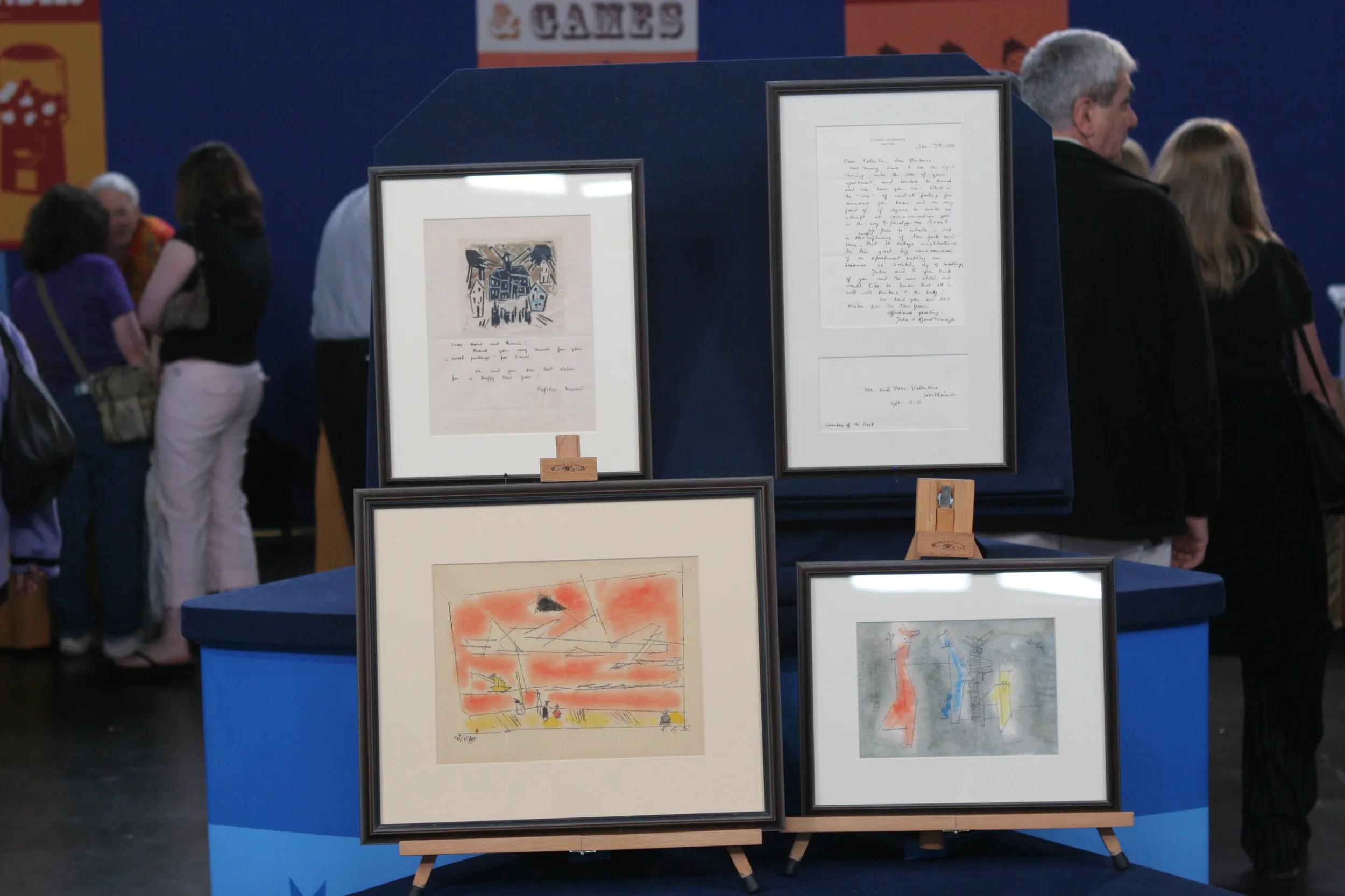GUEST: Bob Ingram was my great-uncle.
APPRAISER: Mm-hmm.
GUEST: And they lived in Atlanta, and they were members of the East Lake Golf and Country Club...
APPRAISER: Yep.
GUEST: ...in Atlanta, and that's where he met and became friends with Bobby Jones.
APPRAISER: And they played golf together.
GUEST: They played on a regular basis.
APPRAISER: '30s and '40s?
GUEST: In the '30s and '40s.
APPRAISER: Did they play at Augusta, too?
GUEST: I can only assume that they did, because my uncle was a member at Augusta, as well, and, um, had standing yearly tickets at the Masters.
APPRAISER: Wow. And these Bobby Jones actually gave to your great-uncle.
GUEST: He did.
APPRAISER: You know, a lot of people would say that Bobby Jones was the Tiger Woods of his era.
GUEST: Yeah?
APPRAISER: No. Tiger Woods is the Bobby Jones of today. Bobby Jones won 23 out of 52 tournaments he entered in the '20s, and he culminated his career in 1930, at the age of 28, winning the Grand Slam, which at the time, U.S. Open, British Open, U.S. Amateur, and British Amateur. With Bobby Jones, it was only the beginning. He signed a contract with Warner Brothers to do 18 instructional films. He gave up his amateur status, which a lot of people don't know, because he was paid well over $100,000 to do these films. He developed golf clubs with Spaulding. He was in World War II as a lieutenant colonel and an intelligence officer. And in 1934, best known, he started the Masters, helping to design the course with Alister MacKenzie and helping to put together the club with Clifford Roberts. Now, in the '50s, that's when Augusta became really famous. 1954 is when this piece was made. This was done by Dwight Eisenhower.
GUEST: Right.
APPRAISER: Very few people know that Dwight Eisenhower, as well as being a president, was not a great golfer, but he was a pretty good artist. And he was very close to Bobby Jones. They actually knew each another from World War II. But he joined Augusta-- he became their most famous member-- so no wonder, in 1954, he did this for Bobby Jones. So, what I'm suspecting here is that because your great-uncle and Bobby Jones were good friends, this was probably a gift in the '50s to him.
GUEST: Okay.
APPRAISER: Another thing that Bobby Jones did was this book, Golf Is My Game. It's a series of books that he actually did. This is early '60s.
GUEST: Okay.
APPRAISER: Now, these signed books are fairly common, and they sell anywhere between $800 and $1,500.
GUEST: Okay.
APPRAISER: This you don't see. My auction estimate is $3,000 to $5,000, and it could even be a bit higher.
GUEST: Okay. We try to be conservative.
APPRAISER: Thank you so much.
